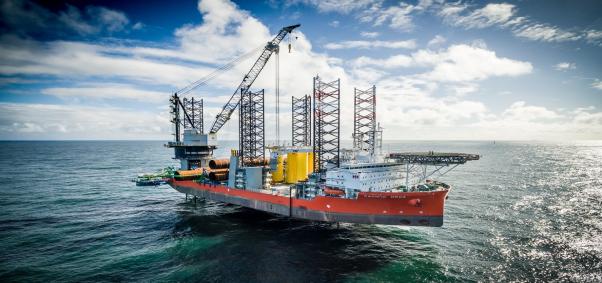
This article was published in India Express on December 2, 2015.
Naina Lal Kidwai is a member of the Global Commission on the Economy and Climate, Chairman of Max Financial Services, and Chairman of FICCI Water Mission.
All too often, we talk about the costs of climate action: The costs of reducing emissions. The costs of renewable energy. The costs of adapting to rising seas and more extreme weather. But for a country such as India, tackling climate change promises enormous benefits — for economic growth and productivity, public health and the alleviation of poverty. It is actually a high-carbon economy that costs the most. About one in five premature deaths in India — perhaps 2 million each year — is caused by environmental factors. Household air pollution, from burning solid fuels, accounts for half of these.
Outdoor particulate matter pollution, from burning fossil fuels for power and transport, caused an estimated 6,30,000 premature deaths in India in 2010, and costs the equivalent of 5.5-7.5 per cent of GDP each year. Half the world’s most polluted cities are here in India, including the top four: Delhi, Patna, Gwalior and Raipur. Indeed, ahead of this year’s Diwali festival, authorities called on the inhabitants of Delhi to refrain from the traditional fireworks, given the already alarming levels of air pollution — but to little avail.
Our energy choices are also costing us financially. Domestic energy production has not kept pace with growth in demand, which is doubling every 15 years. As a consequence, energy imports have surged. Between 2008 and 2012, we spent an average of 6.4 per cent of GDP importing fuel from overseas. Meanwhile, poor urban planning is also holding our economy back. In less than 25 years, our urban population has almost doubled from 222 million in 1990 to an estimated 410 million. By 2050, it is projected to almost double again, to 800 million. Cities are the economic engine of India, accounting for two-thirds of our GDP and 90 per cent of government revenue. But uncoordinated planning, unreliable infrastructure, chronic congestion and growing travel times are constraining the economic potential of our cities.
However, many of the measures that India is taking to address climate change can help to alleviate or solve these problems. In a national climate action plan, unveiled recently ahead of the Paris climate talks, Prime Minister Narendra Modi pledged to reduce the amount of carbon produced for each unit of economic output and increase the share of non-fossil based power generation to 40 per cent of total capacity by 2030.
These goals make good sense. By some measures, the cost of generating power from renewable sources in India has fallen by 65 per cent over the last three years. The cost of electricity from new power plants using imported coal is projected to be 30-50 per cent higher than the cost of wind and solar power in 2030. Homegrown renewable energy will help India’s balance of payments, and bring down its exposure to volatile international energy markets.
At the same time, distributed, smallscale renewable energy can deliver to rural communities the social and economic benefits of electrification much more quickly than if we rely solely on extending the electric grid. Solar power, potentially coupled with batteries, can improve public health, enable access to education and provide economic opportunities. The financing agenda for renewables is particularly important for India. It will also be the focus of an upcoming UN Environment Programme inquiry. Paris will put a spotlight on this critical issue.
Reducing our reliance on dirty coal-fired power plants will help improve air quality. Providing poor people with clean cookstoves would also help address indoor pollution. These benefits are local, immediate, and substantial: For India, they are estimated to be worth Rs 3,600 per tonne of carbon dioxide reduced. Modi is also pursuing policies to promote smart, urban development. Addressing some of the problems in India’s existing model of urban planning could benefit the economy and the climate. For example, compact, connected and well-coordinated cities are more energy efficient. The World Bank estimates that for every 1,000 km of new bus rapid transit lanes, 1,28,000 new jobs are created and 27,000 premature deaths from pollution and accidents are avoided, all the while simultaneously reducing greenhouse gas emissions.
Businesses across the country are also realising that there are clear economic wins if they take action on climate. Leading business houses like Godrej, Mahindra, Tata, Aditya Birla Group, as well as IT powerhouses like Infosys and Wipro, are embracing evolving areas for climate action, such as science-based targets for setting ambitious emission reduction goals, or internalising the price on carbon. Public-sector undertakings like the Indian Railways, National Thermal Power Corporation, Gail and Indian Oil are also leading the business charge on national low-carbon development goals.
More than 42 of the largest businesses in the country voluntarily participate in the India GHG (greenhouse gas) programme — an initiative that facilitates measurement and management of GHG emissions. The programme builds India-specific tools and spreads sectoral best practices, driving more profitable, competitive and sustainable companies. And India’s leading association of business organisations, the Federation of Indian Chambers of Commerce and Industry, has established a “green bond” working group to examine how the country’s debt markets can enable the financing of smart infrastructure.
Taking action on climate change and supporting a strong international agreement in Paris offers enormous advantages to India. The government recognises this, and its climate pledges ahead of the Paris talks are to be welcomed. But we can and should go further. Greater ambition on renewable energy and reducing carbon intensity would lead to greater economic benefits for India. It is in our country’s interest to capitalise on the low-carbon economy. It will allow us to enjoy cleaner air in more liveable cities and, hopefully, in a more stable and hospitable climate. In Paris, we should be prepared to show leadership on these issues, because solving them collectively will bring benefits to us at home.






